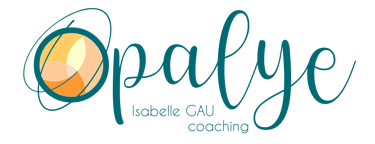Teal companies and Process Formalization
The Teal organizations, pioneers of tomorrow's companies (referring to "Reinventing Organizations" by Frédéric Laloux), invite us to a less rigid and more organic way of operating. Here, we will explore Process Formalization.
9/19/20232 min read


How to transform the corporate culture to make the most out of organizations? This is what Frédéric Laloux explores in "Reinventing Organizations". Organizations known as "Teal" are presented as pioneers of tomorrow's businesses, inviting us to adopt a less rigid and more organic mode of operation.
In this article, I propose that we address the formalization of business processes. Having worked in the field of quality management for nearly 20 years in a major aerospace company, including interfacing with European safety agencies (EASA), I have been immersed in a highly procedural environment (for better or worse). Therefore, I am particularly sensitive to this topic.
Common model: Processes are defined in detail by cross-functional teams often disconnected from the front lines. They are so complex and ill-suited that operators don't really know them and see them more as a constraint than as support.
Teal model: The ways of working are defined by the individuals who possess knowledge and on-the-ground experience. They are thus adapted to the needs and can be constantly adjusted to account for new contexts and opportunities.
👉 How is the decision-making process in the Teal model beneficial for the company ?
People operating on the front lines are best equipped to define the best way to work in a given context.
They feel valued, which enhances their efficiency.
Not being constrained by rigid processes empowers them to strive for excellence instead of mindlessly following a protocol.
The flexibility of the approach allows for adaptation to new contexts.
This way of working fosters creativity for improvement and encourages collaboration among colleagues.
Audits focus on mandatory regulatory aspects, enabling significant cost savings and a focus on the essentials.
👉 What could prevent us from implementing this ?
Regulatory constraints.
Fear of not capitalizing on experience due to lack of standardization.
Lack of visibility making interfaces complicated.
👉 How can these difficulties be overcome ?
Reduce procedures to what is necessary to meet regulations and collaborate with other parts of the extended enterprise, including internal and external suppliers and customers. By making procedures lighter, they will be more digestible and more likely to be known and followed.
Capitalize on knowledge and promote lessons learned and exchanges to stimulate continuous improvement. This does not fit into a procedural framework but rather aligns with what the company does to develop its employees' skills (initial training, ongoing training, awareness programs, knowledge sharing, etc.). The idea is to make people's lives easier and more efficient, not to constrain them.
Simplify, simplify, simplify... to refocus on the essentials, gain efficiency, and open up the field for creativity.
The development of organizations is a journey. Everyone has their own path to bring their aspirations and ambitions to life.
And you? How do you envision your company for the future?


